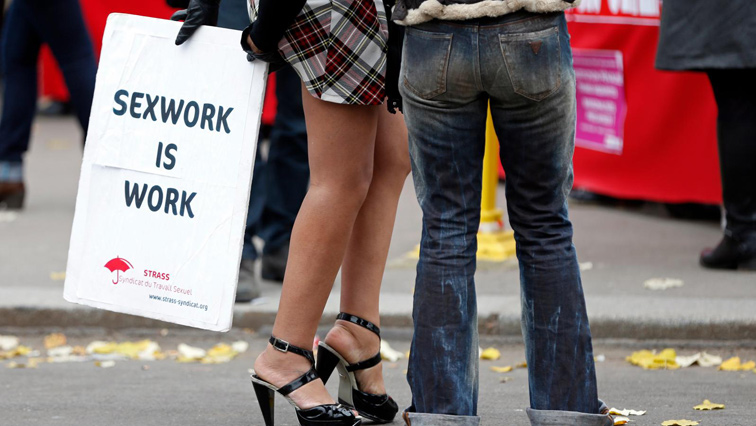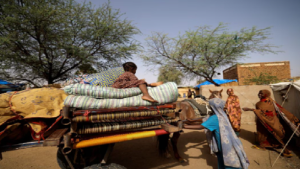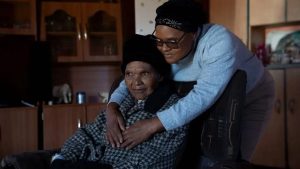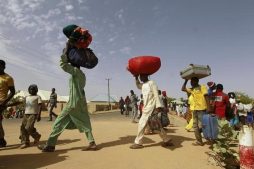As South Africa celebrates Women’s Month, one of the issues facing women is the fact that sex work is illegal in the country.
The Sexual Offences Act of 1957 prohibits the buying, selling of sex and pimping in the country. The criminalisation has not deterred women from selling sex; however, it has exposed them to abuse, crime, exploitation and stigmatisation.
South Africa, still recovering from the effects of apartheid on the population as well as the economy, faces a lot of inequality. The World Bank named South Africa as the world’s most unequal country in 2018. Unemployment statistics in South Africa show that 29% of the population is unemployed with women making up 31% of that statistic.
The unemployment rate for females was 31,3% and remains higher than that of males.
The expanded #unemployment rate was up by 0,5 of a percentage point to 38,5% #StatsSA https://t.co/BaZw8eBfVn pic.twitter.com/5wjKYTCxIb— Stats SA (@StatsSA) July 30, 2019
For some women facing the harsh realities of unemployment, sex work is one of the few options for them to earn a living.
40-year-old sex worker, Rhofiwa Milo (not real name), says that sex work is one of the few options available to her in order to make a living for herself and her two children as she did not go to school at all. Her other option was working at a farm for little money. Milo has been arrested a number of times and was raped by a man who threatened her with a broken bottle. She did not report the rape as she says she knows that the police were not going to take her seriously.
The Human Rights Watch (HRW) and the Sex Workers Education and Advocacy Taskforce (SWEAT), compiled a report on why sex work should be decriminalised in South Africa. HRW Researcher, Skye Wheeler, says criminalisation of sex work causes harm to vulnerable women.
“The criminalisation of this work causes harm to some of the most vulnerable women in a country plagued with violence against women. Criminalisation makes sex work more dangerous. It stigmatises an already marginalised group further; it opens them up to police abuse and to criminals and the occasional sadist who wants to rape, beat and attack women.”
Wheeler says sex workers should be protected and supported much better than they are now. She says decriminalisation must happen in order for sex workers to work in safer environments and to also be afforded more opportunities.
Listen to full Skye Wheeler audio below:
Human Rights Activist from SWEAT, Nosipho Vidima, says sex workers face brutality from police.
“Sex workers continue to face brutality from police. They continue to face being arrested for carrying condoms.”
Vidima says that police raids do not protect sex workers, instead exposes them to more danger.
“Police go in there dressed in their full armour as if they are going to arrest a terrorist. The get there and knock down doors, when they knock down doors, they get in and they beat the women. Some women are raped, their monies are taken away. Some women are here in South Africa from other countries and they are saving; they don’t even have bank accounts. So you can imagine a person has been saving for a year to take their kids to school the next year and all that money is taken away by a police officer that they can’t even charge or get arrested.”
Sex worker and Limpopo Provincial Coordinator of Sisonke, a movement by sex workers, Lindah Dumba, says migrant sex workers face double the stigma sex workers face.
“Migrant sex workers are facing double stigma. Why? 1. They are foreign born. 2. Language barrier. Once you speak to an officer and you are a migrant, they quickly pick it up. There’s stigma, there’s discrimination, unfair treatment to migrants; on top of that, doing work that is recognised as a crime in South Africa.”
Dumba says that migrant sex workers are often threatened with deportation.
“The worst is when migrant sex workers are deported. So, in order to avoid deportation, they opt to give sex to police officers and paying bribes because you think of getting deported and how are you going to come back?”
Dumba says that they want to see decriminalisation as sex workers and they will not tire from their plight.
SWEAT Advocacy Manager, Lesego Tlhwale, says the Sexual Offences Act of 1957 that prohibits sex work, is an oppressive colonial law.
“The law that we a currently using is a 1957 law which is a colonial law. So we can’t still be sitting and trapped in that colonial law and oppressing people because of the legacies of apartheid.”
Tlhwale says they want to help people that were forced into sex work.
“There are people who get into sex work because they were forced into it and we want to help those people. We want to work with people to say: If you were pulled into sex work without your choice then you need to be helped and this is where the police come in. But if sex work remains criminalised, how do we do that? You can’t even go to the police station and report such crimes because you can be arrested because you have to say; how do you know this person? It means you were also on the streets.”
SWEAT says that there are conflicting views from government as the Department of Health says that sex workers need to be protected for health purposes while the Department of Justice says that decriminalisation will turn South Africa into a sex tourist destination. The organisation says that when they approach government on decriminalisation, the government says that it first needs to hold public consultations.
Tlhwale says public consultations on criminalisation will not benefit women as they usually involve traditional leaders that are patriarchal.
“Those are the biggest gatekeepers in anything. They are patriarchal; there are a lot of men involved in there and where there’s men, there’s patriarchy, there’s imbalance of power. Everything is just going to be about them.”
Tlhwale says the Department of Justice needs to act and allow decriminalisation to be an issue of government as a whole. She also says President Cyril Ramaphosa needs to act and stop making promises.
The organisations are calling for government to swiftly decriminalise sex work in South Africa.
“The South African government has missed opportunities in the past to change the law,” said Vidima. “Sex workers need the Department of Justice to take action now to decriminalise.”
Read the HRW and SWEAT report on the decriminalisation of sex work below:
Watch video by the HRW on the decriminalisation of sex work in South Africa below:






